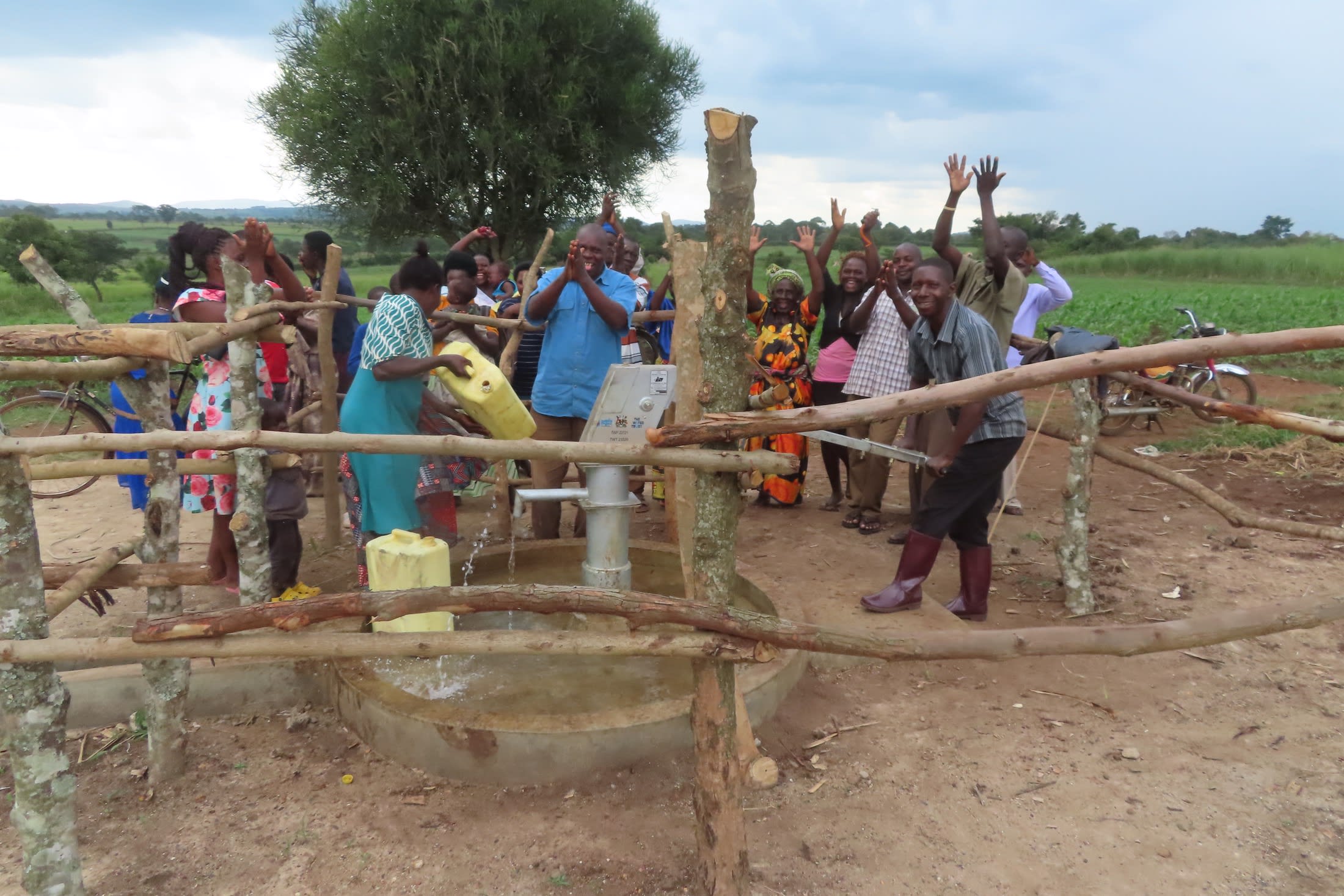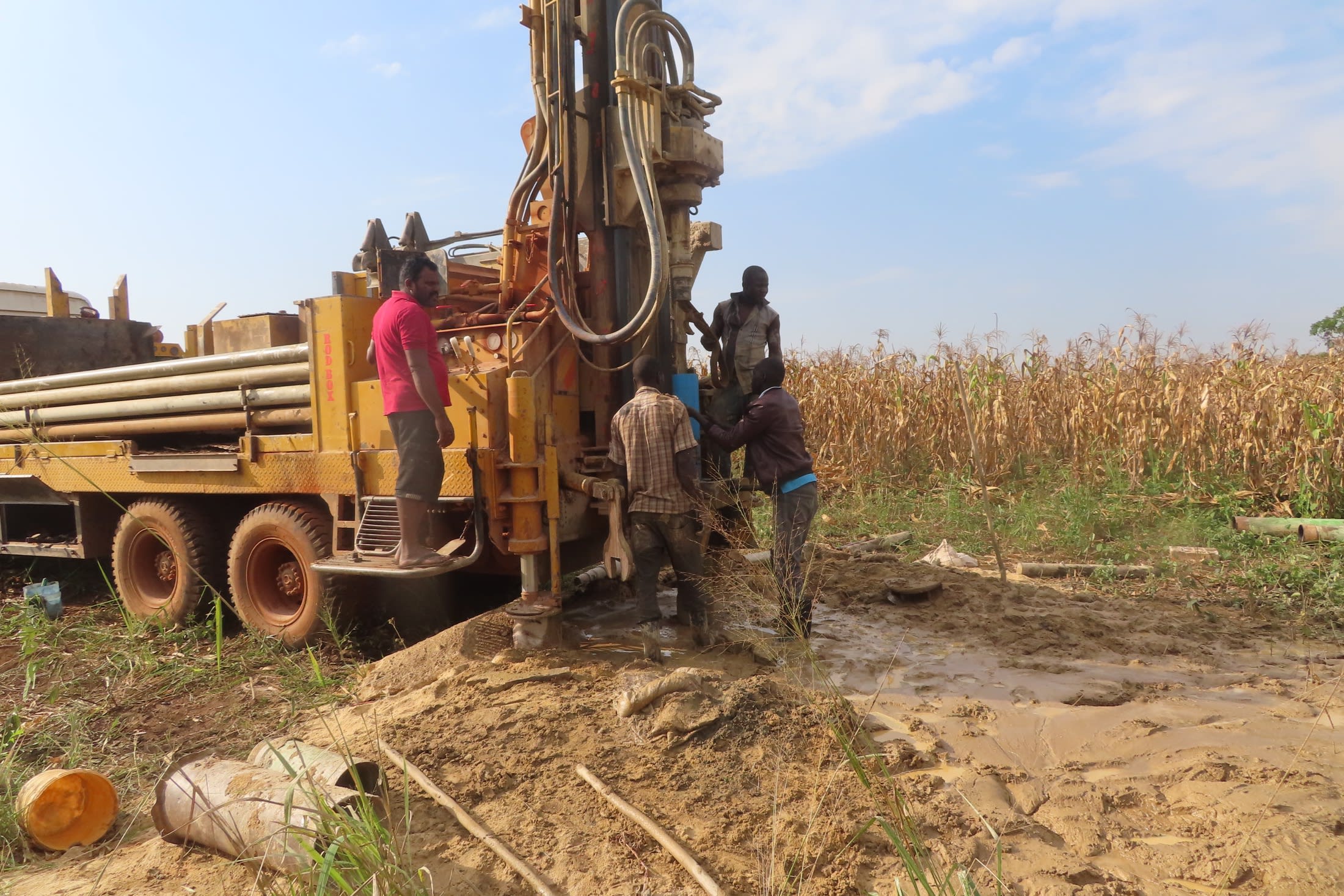In Rubani, the closest clean water sources are more than a three-kilometer (1.86 miles) walk away. When community members finally arrive at either of the borehole wells available to them, they often find them overcrowded, which means waiting in line for their turn to fill their jerrycans.
These wells serve not just the people of Rubani, but the people of several surrounding communities - an estimated total of 1,000 people. But after all that time spent walking to the water source, community members have no choice but to stand and wait their turn, wasting time.
Because acquiring water takes such a long time, people get less of it. Without water to do essential daily tasks, people’s normal routines are disrupted, and important things like working and going to school are challenging. In fact, it would be difficult to find an aspect of life that isn't affected by this community's water crisis.
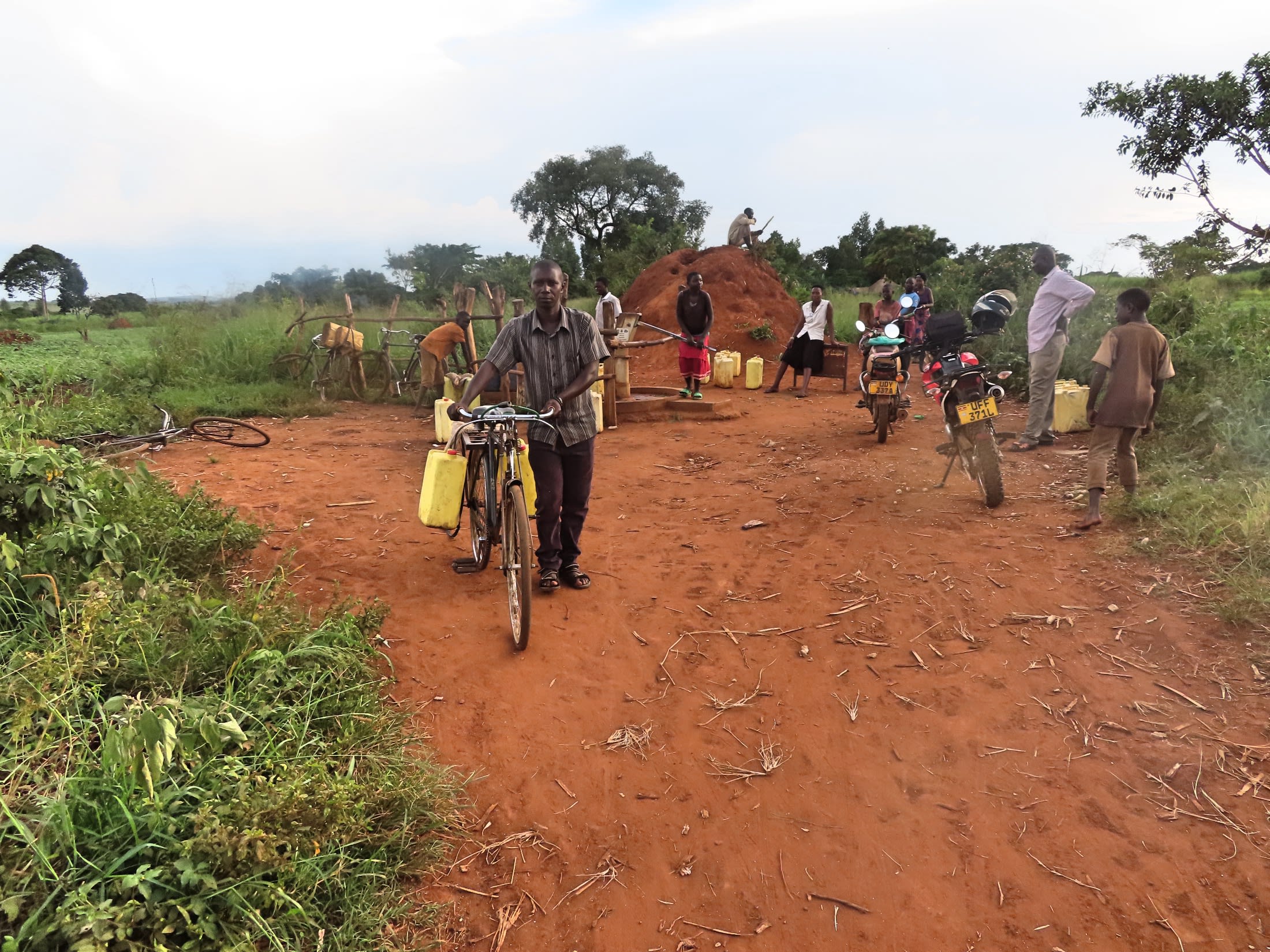
"We collect water from the borehole that is more than three kilometers away from my home," said 44-year-old farmer Livingstone Mugazi, shown above leaving the borehole, with a crowd of people still waiting for water behind him.
"I consider this borehole as my primary water source, but it is difficult to access because of the distance," Livingstone continued. "Sometimes I have to wake up early and go to fetch water, hence missing out on the garden (farm) work. This affects my daily plans, and it has affected [the] food production in our household. We spend money to buy water because there are times when one cannot go to the borehole. This is too costly. You find that the money which would have been used for development activities is spent on water."
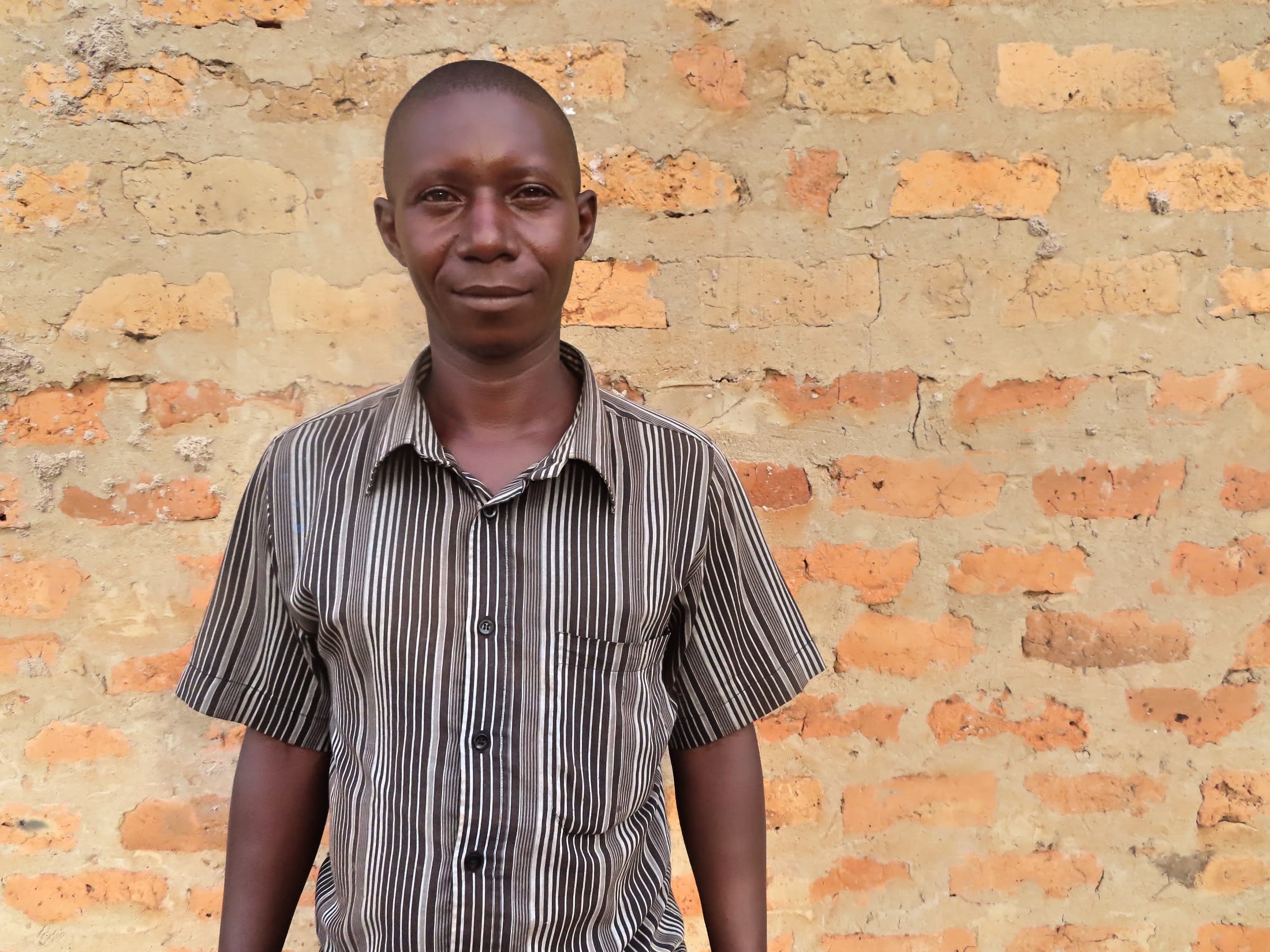
"The water crisis also impacts our children's education because sometimes they miss school when there is no water to wash uniforms and bathe as well. Children have to rush from school and come back home to fetch water. Sometimes we fail to bathe and wash [our] clothes due to the scarcity of water. This affects our hygiene."
The poor hygiene caused by water scarcity affects young girls, too, in that menstruating becomes a lot more difficult when one can't keep themselves clean. Such is the case for 15-year-old Catherine A.

"I am a pupil at Kikingura Model School in primary five," Catherine said (she's shown above at the community's secondary water source, a dam, which is only used for washing and bathing).
"I started my periods while at school, and the senior woman teacher lectured me on MHM (Menstrual Hygiene Management): that I have to bath at least three times a day, especially before changing [my] pad, and for the days spent in school, my personal hygiene was well managed."
But the situation at home, where water is harder to come by, is more difficult.
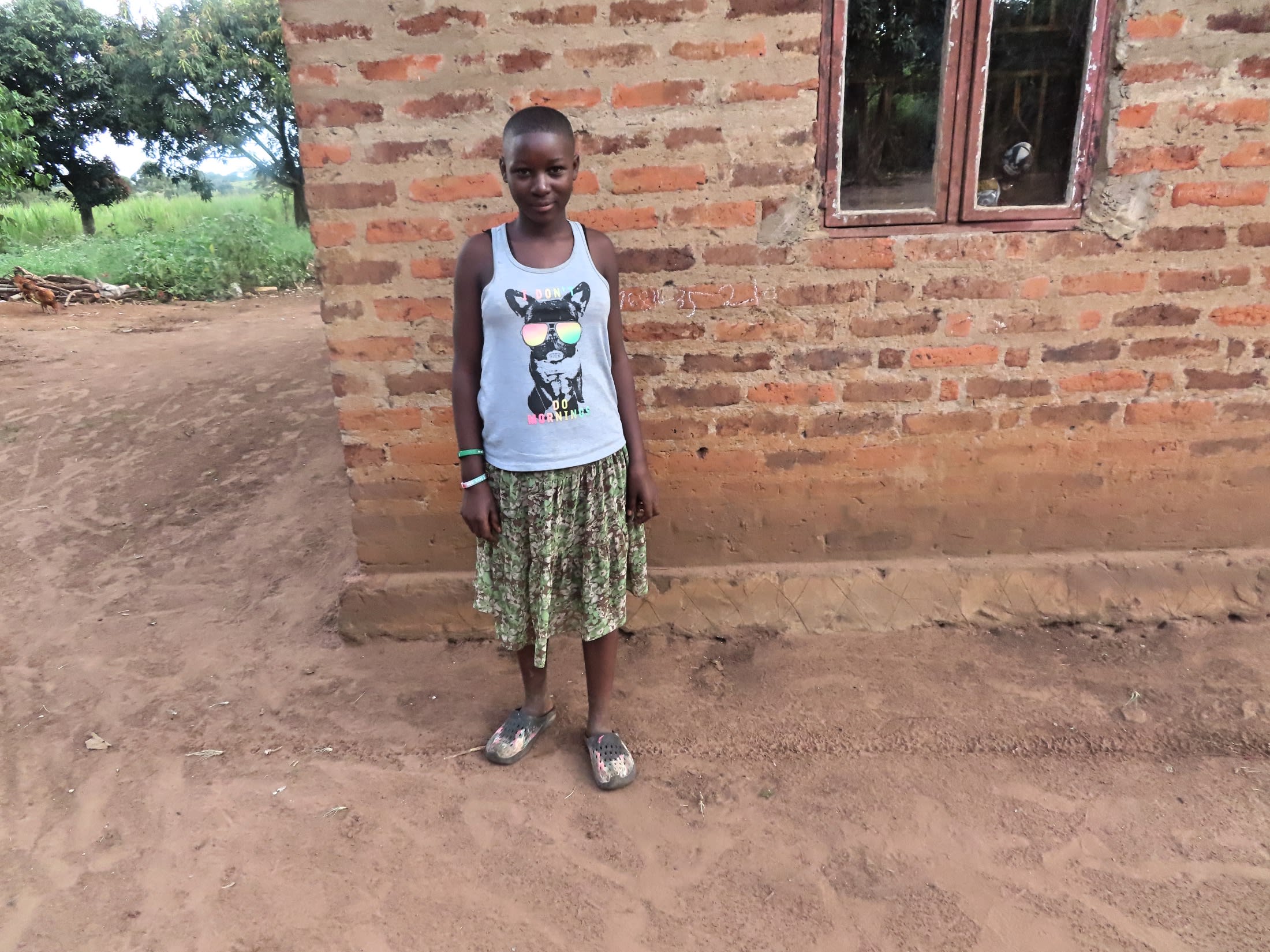
"I always have challenges while at home during holidays because, to access water, I have to move about three kilometers away from [my] home, through the sugarcane plantations with a lot of fear that I might be raped by the sugarcane cutters. Besides, the water [we collect at home] is never enough since it's prioritized for preparing food only, making my menstrual hygiene an issue."
“Inadequate drinking water, sanitation and hygiene pose critical health risks to all children, but have additional implications for the health, psychosocial well-being and mobility of women and girls.” - UNICEF
The people of Rubani need their own water source closer to home so that they can spend time doing what they need to live healthy, happy lives.
Note: Our proposed water point can only serve 300 people per day. We are working with the community to identify other water solutions that will ensure all 450 people in the community have access to safe and reliable drinking water.
Here’s what we’re going to do about it:
New Borehole
This new borehole is an exciting opportunity for this community! We work with the community to determine the best possible sites for this well.
We conducted a hydrogeological survey and the results indicated the water table is an ideal candidate for a borehole well. Due to a borehole well's unique ability to tap into a safe, year-round water column, it will be poised to serve all of the water needs for this community, even through the dry months.
Community members will help collect the needed construction materials such as sand, rocks, and water for mixing cement. They will also provide housing and meals for the work team, in addition to providing local laborers. We will complement their materials by providing an expert team of artisans and drilling professionals, tools, hardware, and the hand-pump. Once finished, water from the well will then be used by community members for drinking, handwashing, cooking, cleaning, and much more.
Training
Training’s main objectives are the use of latrines and observing proper hygiene practices since these goals are inherently connected to the provision of clean water. Open defecation, water storage in unclean containers and the absence of hand-washing are all possible contaminants of a household water supply. Each participating village must achieve Open Defecation Free status (defined by one latrine per household) prior to the pump installation for this borehole well.
This social program includes the assignment of one Community Development Officer (CDO) to each village. The CDO encourages each household to build an ideal homestead that includes: a latrine, a handwashing facility, a separate structure for animals, a rubbish pit and a drying rack for dishes.
We also implement the Community-Led Total Sanitation (CLTS) approach with each of our village partners. This aims to improve the sanitation and hygiene practices and behaviors of a village. During these sessions, village leaders naturally emerge and push the community to realize that the current practices of individual households – particularly the practice of open defecation – are not only unhealthy, but affect the entire village. CLTS facilitates a process in which community members realize the negative consequences of their current water, sanitation and hygiene behaviors and are inspired to take action. Group interactions are frequent motivators for individual households to build latrines, use them, and demand that other households do the same.
Improved Sanitation
The aim is that all households own an improved latrine. Many households do not use a latrine but use the bush. Due to open defecation, feces are spread all over the village. This leads to waterborne diseases and contamination of groundwater and surface water. Our aim is that the community is able to live a healthy life free of preventable diseases. We endeavor that at the end of our presence in the community, people will have both access to sustainable, clean water and access to sanitation. We have now organized families to form digging groups for latrine construction, and empowered them with tools to use.





 Borehole Well and Hand Pump
Borehole Well and Hand Pump
 Rehabilitation Project
Rehabilitation Project








